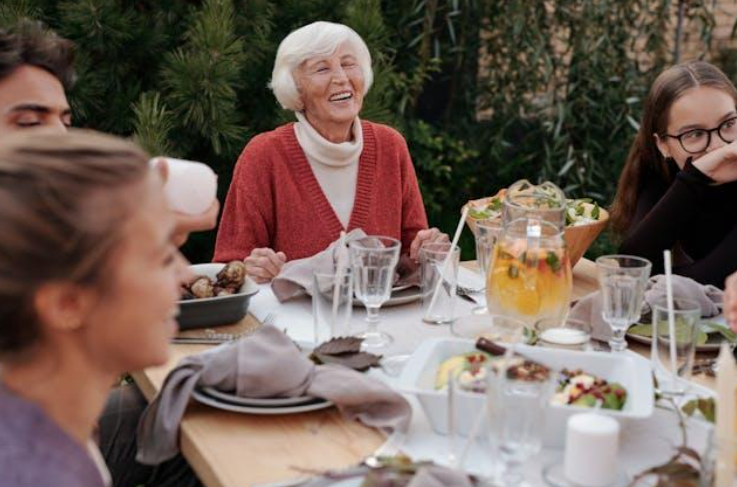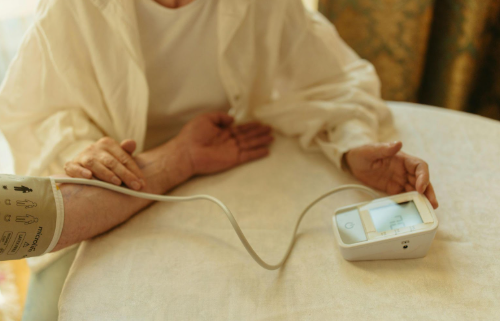How to Keep Seniors Safe from Falls and Injuries This Summer

Warmer weather brings more activity, sunshine, and opportunities for seniors to enjoy the outdoors. But it also introduces new risks, particularly falls and injuries. Heat, dehydration, uneven terrain, and shifting routines can all lead to accidents that affect independence and health. Protecting your loved ones requires proactive strategies that support safety without limiting their freedom.
With
personalized care services tailored to summer-specific challenges, you can help reduce these risks while enhancing quality of life at home and outdoors.
Adjust Home Layout for Summer Safety
Summer encourages frequent movement between indoors and outdoors, exposing seniors to risks like slippery floors from rain or sprinkler runoff, unsecured rugs that shift easily, and insufficient lighting during early mornings or evenings.
Professional caregivers can evaluate these risks and recommend changes such as securing mats with non-slip backing, improving floor traction with specialized coatings, rearranging furniture to widen walking space, and installing brighter, energy-efficient lighting near entryways and staircases. These adjustments reduce trip hazards and support
safer navigation in warmer months.
Support Hydration and Nutrition
Heat accelerates fluid loss, especially during outdoor activities or in air-conditioned environments that can dry the skin. Caregivers play a critical role in maintaining hydration by offering frequent water breaks and serving hydrating foods like cucumbers, melons, and soups rich in electrolytes.
Balanced nutrition also supports muscle strength and cognitive function, helping prevent dizziness or weakness. Avoiding high-sodium and caffeine-laden foods reduces dehydration risk, while regular monitoring helps detect early signs of fluid imbalance before it leads to falls.
Smart Technology Helps
Motion-sensor lights reduce nighttime stumbles by lighting the path before your foot hits the floor. Smart plugs allow you to control appliances or lighting through voice commands, reducing the need to bend or reach. Fall detection sensors can recognize inactivity or impact and alert emergency contacts, even if you can’t speak.
These systems are discreet, easy to use, and increasingly affordable. When paired with caregiver monitoring apps or automatic medication dispensers, you get peace of mind with minimal effort and no disruption to your routine.
Mobility Support Matters
Properly fitted canes and walkers add needed stability, especially when walking on uneven sidewalks or grass. Rollators with built-in seats offer rest when fatigue sets in.
For greater mobility, electric scooters or wheelchairs allow you to attend events, go shopping, or simply enjoy the outdoors without overexerting yourself. A physical therapist can help you choose the right device and teach you how to use it effectively. To maintain safety and reliability and to keep your mobility aids in top condition, consider:
- Ensure a Proper Fit: Your cane or walker should match your height so your elbows are slightly bent when holding it. An improper fit can throw off your balance and lead to fatigue or poor posture.
- Inspect Regularly for Wear and Tear: Check wheels, rubber tips, and brakes weekly. Look out for cracks, loose bolts, or decreased brake strength—these can compromise safety during use.
- Use Smart Accessories: Instead of holding bags or items while walking, opt for clip-on baskets, trays, or cup holders made for your mobility aid. This keeps your hands free and your balance steady.
- Keep It Easy to Access: Store your mobility device in a convenient spot—by your bed, near the door, or at arm’s reach, so you’re never tempted to go without it in a moment of hurry.
- Get Professional Guidance: A physical therapist or occupational therapist can assess your gait and needs to recommend the most appropriate device and make sure it’s properly fitted and adjusted.
Personal Care Support
Hot weather increases the risk of fatigue, dizziness, and slipperiness, making daily hygiene and dressing tasks more hazardous. Caregivers assist with these routines to reduce your fall risk and protect your comfort.
Whether it's helping you bathe safely using grab bars or guiding dressing with breathable clothes and secure footwear, having hands-on help makes every step safer. Caregivers also encourage rest breaks during grooming or changing to prevent exhaustion and maintain your dignity.
Sensory Health Counts
If your vision is blurred or you have difficulty seeing contrasts, it becomes harder to judge depth or spot obstacles like curbs or cracks. Schedule annual eye exams and wear up-to-date lenses. Consider photochromic or UV-filter glasses for glare protection.
Likewise, untreated hearing loss can impair balance and make it harder to detect surrounding hazards. Hearing aids, when used properly, not only improve communication but also spatial awareness. Investing in sensory health is an investment in fall prevention.
Medication Reviews Help
Many seniors take multiple medications, some of which may cause drowsiness, dizziness, or high blood pressure. These side effects are more intense in hot weather or when you’re dehydrated. A seasonal medication review with your pharmacist or physician can identify risky combinations.
Adjustments, whether in dosage or type, can significantly improve your alertness and balance. Use weekly pill organizers, set reminders, or opt for automated dispensers to stay on schedule. Let your provider know immediately if you feel off-balance or unusually tired; it could be your medications, not just the heat.
Transportation Made Safer
Errands, appointments, and visits can become risky without support. Your caregiver makes sure you have safe transportation not just by driving but by managing the physical transitions that come with it.
From helping you in and out of the car to navigating ramps, curbs, or crowded spaces, their support prevents trips, slips, or disorientation. They’ll also handle your walker, cane, or wheelchair during outings so you can focus on where you're going, not what might go wrong getting there.
Seasonal Routine Adjustments
Summer schedules can shift because of family visits, local events, or last-minute outings. When your days get busier, your care should too. Caregivers adapt to seasonal changes, offering extra support during active periods or modifying routines for new circumstances.
This flexibility helps you enjoy summer plans without sacrificing safety or supervision, especially during days when your usual rhythm is disrupted.
If you’re looking to stay active without compromising safety this summer, let our
Five Star Home Health Care Agency care team help you move confidently through the season.
Call now to explore a care plan that keeps you safe and self-assured.










